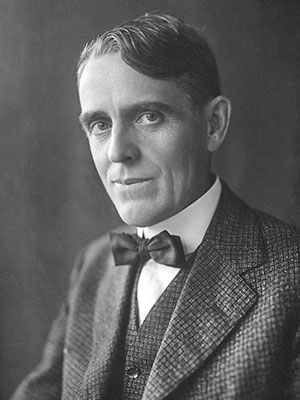Get Today in Masonic History into your Inbox. Sign up today for one of our email lists!
Need an article for your Trestleboard/Newsletter see our Use Policy
Arthur Capper is Born

Today in Masonic History Arthur Capper is born in 1865.
Arthur Capper was an American politician.
Capper was born on July 14th, 1865 in Garnett, Kansas. He attended public schools in Kansas. After graduation he learned the art of printing. Eventually he became a newspaper publisher. He also entered into radio with two stations in Kansas. His biggest publishing triumph was Capper's Weekly. It had an enormous readership among farm families. The magazine is still in existence as a bimonthly magazine focused on rural living.
From 1910 to 1913 Capper served as President of the Board of Regents of Kansas State Agricultural College, which is now known as Kansas State University.
In 1912, Capper first entered politics when he unsuccessfully ran for the Governor of Kansas. Two years later he ran again, this time successfully. He served two consecutive terms as governor from 1915 to 1919. Under the Kansas Constitution he was not eligible for a third term. His election is notable as this made him the first native born Kansan elected as Governor of the state.
In 1918, Capper ran successfully for the United States Senate. He served 5 consecutive terms as Senator from 1919 until 1949. In Congress he was prominent among his fellow Republicans for supporting the relief efforts and other policies of Franklin Delano Roosevelt's administration. When it came to foreign affairs, Capper was something of an isolationist, as were many people in the United States who lived through World War I.
Capper focused largely on agricultural issues while in the United States Senate. In the early 1920's he co-sponsored the Capper-Volstead Act which gave "associations" of people selling agricultural products exemptions from certain anti-trust laws. In 1923 Capper brought forward a constitutional amendment with an anti-miscegenation provision outlawing mixed-race marriages. He struck out the passage after protest from African-American organizations and stated it was an unnecessary troublemaker. The bill itself had not been written by Capper, instead it was written by the American Federation of Women's Clubs.
In 1946, Capper was the chairman of the Senate Agricultural Committee. At this point he was 81 years old and his health was beginning to fail him. He had become deaf and his speech became difficult to understand. Despite his health problems in 1947 he joined the Congressional Flying Club to take flying lessons. He was the oldest member of Congress. In 1948, he decided not to seek reelection.
Capper passed away on December 19th, 1951.
Capper was a member of Orient Lodge No. 51 in Topeka, Kansas. He also received his 33° from the Ancient Accepted Scottish Rite, Southern Masonic Jurisdiction.
This article provided by Brother Eric C. Steele.

